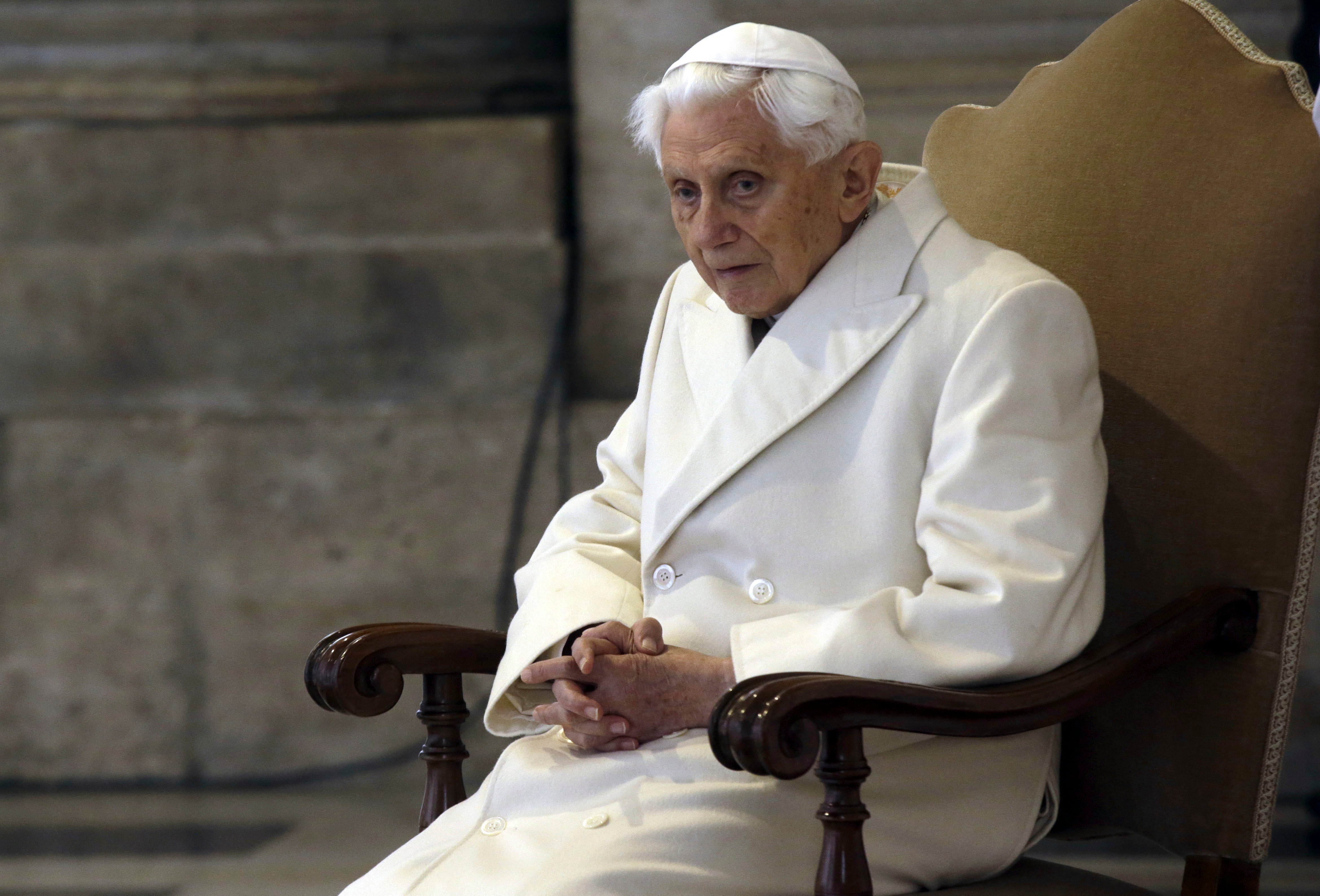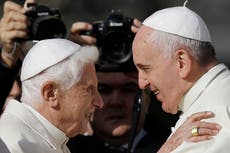Former Pope Benedict XVI acknowledges ‘errors occurred’ in handling of Munich abuse allegations
The 94-year-old did not directly address allegations in a report that he mishandled four sex abuse cases

Former Pope Benedict on Tuesday acknowledged that errors occurred in handling sexual abuse cases when he was Archbishop of Munich and asked for forgiveness, as his lawyers argued he was not directly to blame.
The Vatican issued a letter by Benedict and a three-page addendum following a report released last month on abuse in the archdiocese from 1945 to 2019 which included the alleged failure by then Cardinal Joseph Ratzinger to take action in four cases when he was Munich archbishop between 1977 and 1982.
“I have had great responsibilities in the Catholic Church. All the greater is my pain for the abuses and the errors that occurred in those different places during the time of my mandate,” he wrote in the letter, his first personal response to the report.
Noting that he had asked for forgiveness for the Church in his meetings with abuse survivors, Benedict, 94, wrote:
“I have come to understand that we ourselves are drawn into this grievous fault whenever we neglect it or fail to confront it with the necessary decisiveness and responsibility, as too often happened and continues to happen ... once again I can only express to all the victims of sexual abuse my profound shame, my deep sorrow and my heartfelt request for forgiveness.”
A separate analysis by four legal experts he commissioned, however, disputed the specific allegations against the former pope, saying investigators had mischaracterised actions and ignored facts.
While his lawyers’ rebuttal was sharp, detailed and contentious, Benedict’s page-and-a-half page German letter was deeply personal and couched in religious terms as he reflected on a long life approaching its end.
In one section he openly wondered if he, as all Catholic do in a prayer known as the Confiteor at Mass, should ask for forgiveness for what they have done and what they have failed to do “by my fault, by my most grievous fault”.
He wrote: “It is clear to me that the words ‘most grievous’ do not apply each day and to every person in the same way. Yet every day they do cause me to question if today too I should speak of a most grievous fault.”
Benedict does not answer his own question but says he is consoled that God forgives.
“Quite soon, I shall find myself before the final judge of my life,” he wrote.
Benedict, who resigned unexpectedly in 2013, also thanked Pope Francis for the “confidence, support and prayer ... personally expressed to me”. He did not elaborate.
Soon after the German report was issued, Benedict acknowledged that he had been at a 1980 meeting over a sexual abuse case when he was archbishop of Munich, saying he had mistakenly told German investigators he was not there.
At the time, Benedict’s personal secretary, Archbishop Georg Ganswein, said the omission was the result of an oversight in the editing of 82-pages of testimony he had sent the investigators and not done out of bad faith.
In Monday’s letter, Benedict said: “To me it proved deeply hurtful that this oversight was used to cast doubt on my truthfulness, and even to label me a liar.”
The Vatican media package issued on Monday included videos of Ganswein reading the pope’s letter in German and Italian.
The three-page addendum, called “Analysis of the Facts by the collaborators of Benedict XVI”, was written by three canon (Church) lawyers and one civil lawyer.
Last month’s report on abuse in Munich, which identified nearly 500 abuse victims over nearly 75 years, was written by a German legal firm commissioned by the archdiocese.
Reuters
Join our commenting forum
Join thought-provoking conversations, follow other Independent readers and see their replies
Comments


Bookmark popover
Removed from bookmarks